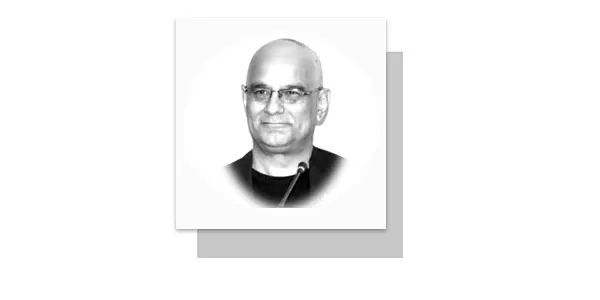AT a recent event in Bangkok which was organized to build tourism ties between Pakistan and Thailand, the author was asked to provide a keynote address on “Pakistan – Heritage, potential and perceptions”. Before making the presentation, the author wanted the Pakistani delegates to express their perception of Pakistan. To the query directed towards the Pakistani participants “Where would you place Pakistan in the world. Don’t worry about the category or criteria, just what pops in your head when you think of Pakistan’s place in the world?” The answer was, “We think Pakistan is at the bottom 5% to 10% of the nations of the world.”
So, it would appear that Pakistanis have a low opinion of their own country. Given this mindset, how can Pakistanis promote Pakistan to the world when they think so low of Pakistan? At the outset, the author disagreed with his Pakistani compatriots on these misperceptions and the subsequent presentation of a short 20-minute documentary changed the audience’s perception about Pakistan. It was nothing magical; the presentation simply countered their misperceptions with a set of facts.
However, before getting into the facts, it is perhaps true that Pakistan is considered by many to be in the bottom 10-20 percentile of the 200 plus nations of the world. Particularly, if Pakistan is gauged through the prism of the social indicators, i.e. healthcare, malnutrition, incidence of polio, literacy, stunting amongst children, women empowerment and so on. However, any development actor can tell you that these indicators can be changed in the positive direction within a decade under the right leadership and with focused investment. So we should not look at the standing of any country on the world stage based on social indicators alone.
What does not change easily and even over decades, and what gives a nation long-term importance are four other factors which the author employed to rank Pakistan in the world. The factors are: (1) Population of the country, (2) Military strength of the nation, (3) Size of the economy, and (4) Nuclear capability. Admittedly, the last one is not at par with the other three but it is important, nonetheless. Let’s look at Pakistan on the basis of these four criteria.
Pakistan is the 5th largest country of the world at 250 million, 5th out of 200! We are huge and everyone knows size matters in this world. It was only a few decades ago that Pakistan’s neighbours in the east (India) and north (China) were relatively poor with low per capita incomes and per capita GDPs. However, investors from the world flooded them since the numerical size of the markets was tremendous, literally in billions. That led to economic revival at an accelerated pace for both nations. Likewise, not in the distant future, Pakistan will become a destination for investors. Because, not only is it the 5th largest country currently, but within 15 years, it will be the 3rd largest country of the world with a population of 400 million—larger than the USA or the entire population of the EU.
When it comes to military might, Pakistan has one of the most capable militaries in the world. International ranking by Global Firepower places Pakistan as the 6th largest and 9th most effective militaries of the world. Pakistan’s military is arguably the most experienced military in the world having participated in every conceivable military operation including counter-terrorism, counter-extremism, counter-nationalism, outright wars as well as response to “misadventures” by neighbours.
It has even participated in proxy wars among superpowers (namely USA and USSR). Some would argue that Pakistan is perhaps the only “small” country in the world that forced the breakup of a superpower, namely the USSR. Military might and strength matter tremendously on the world stage, and is a strong factor in the ranking of a nation. In this day and age, the size of the economy of a country is critical. Despite recent economic challenges, Pakistan ranks as the 24th largest economy globally, with a GDP of $1.2 trillion based on purchasing power parity. Projections suggest that in 15 years, with a population of 400 million, Pakistan’s economy could surge to $4.4 trillion, making it the 14th largest globally. Despite potential per capita income issues, its sheer size would make it an enticing prospect for investors worldwide, potentially surpassing economies like South Korea and Saudi Arabia.
The final factor in the ranking is “nuclear capability.” Pakistan is one of the 9 nuclear nations of the world, and the only Muslim country with nuclear capability. It is also ranked 6th of the nine nuclear powers. For anyone who doubts that nuclear capability matters, look no further than North Korea and the disproportionate importance that it gets on the world stage because it is a nuclear power. Hopefully, the preceding arguments have been able to impress the reader on the importance of the four factors that are being used to rank Pakistan, namely population size, military strength, economic size and nuclear capability. If the rankings (5, 7, 24 and 6) are averaged, the average is 10. That makes Pakistan the 10th most powerful nation among the 200 plus nations of the world. In other words, 10 out of 200 would place Pakistan in the top 5 percentile of world nations.
The author concluded that Pakistan is not at the bottom 5 or 10 percent of the nations of the world but the top 5 percent. In desi terms, he said “Pakistan is one of the Chaudries (chiefs) of the world, it simply doesn’t know it, the world doesn’t know it, and subsequently, no one in the world accepts us as such”. He concluded by stating that there is much hope if Pakistanis recognize what Pakistan’s place in the world is, and although the present may seem uncertain, Pakistan can head towards a bright future.
—The writer is a former Senior Advisor to the Government and a sector development specialist.
views expressed are writer’s own.










